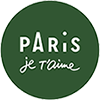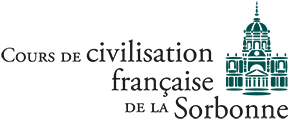Learning a new language, especially one as rich and nuanced as French, involves more than just memorising vocabulary and mastering grammar. It requires an understanding of the various registers of the language, particularly formal French and informal French. Each register serves its own purpose and context, and knowing how to navigate these can significantly enhance your communication skills (as well as saving you from a “social faux-pas”). This article will explore the key differences between these registers, when to use each, and how specialised courses at the Cours de Civilisation Française de la Sorbonne (CCFS) can support your learning journey.
Understanding the Registers of French
What is Formal French?
Formal French is characterised by politeness, respect, and professionalism. It is used in situations that require a more serious tone and is essential for effective communication in various formal contexts.
Key Features of Formal French
- Polite expressions: For instance, the use of “vous” instead of “tu” when addressing someone to convey respect (both translating to “you”, but one being more formal than the other, a bit like the “thou/thee” in religious context).
- Complex sentences: The incorporation of more elaborate sentence structures and a broader vocabulary.
- Standard grammar: Adherence to grammatical rules, avoiding contractions or slang that may detract from professionalism.
What is Informal French?
On the other hand, informal French is the everyday language used among friends, family, and in casual settings. This register is often marked by a relaxed tone and can vary significantly based on region or social group.
Key Features of Informal French
- Use of “tu”: The familiar form of address indicates closeness or familiarity with the person.
- Colloquialisms and slang: Incorporation of everyday expressions and slang that may not adhere to strict grammatical rules.
- Simplified structures: Shorter sentences and frequent contractions that make conversation flow more naturally.
When to Use Formal vs. Informal French?
Situations Requiring Formal French
- Job Interviews and Professional Settings: Present yourself professionally; use formal language to make a strong impression.
- Academic Settings: Maintain a respectful tone when discussing topics or presenting research findings.
- Public Events: Utilise formal language in speeches or when addressing large groups to convey authority and respect.
Situations Favoring Informal French
- Social Gatherings: Engage in casual conversations with friends, family, or peers.
- Texting or Online Chats: Informal communication often employs slang and abbreviations that enhance relatability.
- Casual Meetings: In relaxed environments, such as cafés or bars, feel free to adopt a more informal tone with acquaintances.
The Importance of Context and Subtext
Understanding the context is crucial when switching between formal and informal French. Each register carries its own subtext—the unspoken implications or nuances behind the words. Being attuned to these subtleties can significantly enhance your communication skills, allowing you to convey the right message in the appropriate tone (and conversely, avoid unwittingly conveying the wrong message). Taking specific Business French classes such as the ones offered by the CCFS can help you make the right impression in the right context by understanding not just the words but the entire message your attitude and language convey together.
Tips for Mastering Context
- Observe native speakers: Pay attention to how they switch between registers based on their audience and setting.
- Practice with different scenarios: Role-playing can help you become more comfortable with both formal and informal interactions – as with most skills, practice makes perfect.
- Engage in active listening: Understanding how others communicate can improve your ability to respond appropriately in different contexts.
Advantages of Learning at the CCFS
If you are serious about learning French, consider enrolling in courses at the Cours de Civilisation Française de la Sorbonne (CCFS). This esteemed institution is not only located in the heart of Paris but also offers a unique blend of formal and informal language training. Here are some compelling advantages of our monthly courses:
Rapid Progress and Immediate Results
- Quick mastery: The structured curriculum is designed to help you make significant progress in a short time.
- Practical application: Lessons are tailored to enable immediate use of the language in real-life situations, reinforcing your learning.
Gateway to Other Courses
- Comprehensive education: CCFS courses lay the groundwork for further studies in French language and culture.
- Diverse learning paths: Students can explore various aspects of French, including literature, history, and culture, enriching their overall understanding. The CCFS also offers specific, tailored classes such as Business French to shine in professional settings.
Unique Course Structure
- Regular grammar and spelling classes: Develop a strong foundation in the language, ensuring that you grasp essential grammatical rules.
- Phonetics classes: Enhance your pronunciation and oral comprehension through specialised training in phonetics labs, a feature that sets CCFS apart from other institutions.
Immersion in French Culture
- Cultural insights: CCFS offers students the opportunity to learn about French culture, traditions, and customs, allowing for a more immersive experience.
- Access to modern facilities: The institution is equipped with contemporary classrooms and resources that enhance the learning experience.
Experienced Instructors
- Expert guidance: CCFS boasts a faculty of experienced instructors who bring extensive knowledge and teaching experience to the classroom.
- Personalised attention: Smaller class sizes allow for individualised support, ensuring that each student’s needs are met.
Bridging the Gap Between Formal and Informal French
Understanding both formal and informal French is crucial for anyone looking to fully master the language. While it is essential to be proficient in formal contexts – especially for academic and professional purposes – being comfortable with informal French is equally important for social interactions. That being said, if you aim to conduct business in French, the CCFS offers specific “Business French” classes tailored for mastering French in a professional setting.
Strategies for Effective Learning:
- Engage in conversations: Regularly practice speaking with native speakers or fellow learners to enhance your fluency and comfort.
- Watch French media: Consuming French films, music, and television shows can expose you to informal language and cultural references.
- Participate in language exchanges: Connecting with French speakers who wish to learn your language can provide practical experience in both registers.
Formal French and informal French: what context?
Mastering the differences between formal French and informal French is essential for effective communication in various contexts. Each register serves its own purpose and influences how you interact in both social and professional environments.
Enrolling in courses at the CCFS not only equips you with the necessary skills to navigate these registers but also immerses you in the rich culture and history of France. With modern facilities and experienced instructors, the CCFS is your ideal partner in your journey to learn French effectively.
By understanding and mastering both formal and informal registers of French, you can elevate your language skills and navigate various contexts with ease. Whether you are preparing for a job interview or enjoying a casual conversation, knowing when to use each type of French will greatly enhance your communication and overall language proficiency.













